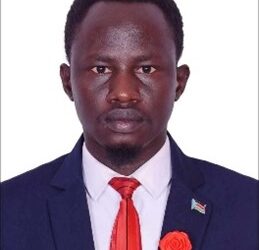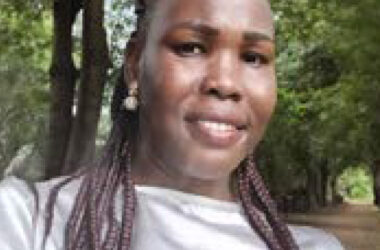By Philip Abiel
…….From last issue
Involvement of education stakeholders. Education is a process that cannot be accomplished by one institution or individual. It is very essential to involve various stakeholders in the educational processes of the whole country, starting with the development of policies, a syllabus, a school calendar, the construction of buildings and facilities, the provision of utilities, and criteria and standards for recruiting and promoting teachers and administrators, respectively.
Education partners need to be sensitized in order to participate and contribute fully in terms of ideas or materials to assist in the development and strengthening of the education system and institutions in South Sudan.
Academia, particularly educationists, can be involved in designing the syllabus, school calendar, and educational policies that are effective and up to date to respond to the changing world of today.
Communities can also be given some tasks to carry out and contribute to the development of education infrastructure and facilities in the country, particularly the provision of land and building materials, among others.
Some South Sudanese communities would like to be provided with public goods and services, but they don’t have land in a strategic location where those services could be provided.
Communities are demanding roads, but when they were requested to allow the government to break Mountains into stones in order for the roads to be built in the country, they refused to the extent that they could even destroy construction equipment being brought for that purpose.
When communities are requested to open passage for the road, it is a big problem while they are demanding the road, but logically, where will the road pass through, or should the road be constructed on air? Communities must be seriously engaged to give land for the construction of schools, police stations, hospitals, government offices, etc., and provide passage for national and state roads as their contributions to the development of the whole nation, not just the education sector alone.
And by doing so, we would have been involved and allowed a vast majority of our society and others to participate and contribute to the building and development of our beloved country, South Sudan.
Even parents of pupils and students require involvement in areas of problem-solving at the school level since they are part of the Parents and Teachers’ Association (PTA).
So, parents can be used to assist in the resolution of conflicts within the schools between teachers as well as between teachers and students or pupils for that matter, apart from their contribution for school maintenance costs and teachers’ refreshment and upkeep to retain the teachers at the schools and make them active and effective.
Other stakeholders can also be invited to help develop and strengthen learning processes and systems, such as NGOs, civil society organizations, UN agencies, etc.
Educational instructors and inspectors The Educational Instructors are very crucial; they are the most senior and experienced teachers in the country, with rich educational backgrounds and practical experiences.
They are employed by the Ministry of General Education and Instructions not to teach but to give instructions and supervise teachers during learning processes in the schools.
They monitor teachers in the classes to improve their standard of teaching by identifying the weaknesses of those teachers as they give lessons in the classes, and this is where incompetent teachers will be identified and reported directly to the Head Teachers, Directors of Education, or Ministry of Education in the States for corrective measures.
Also, they will identify weaknesses in the curriculum together, receive feedback from the teachers on the syllabuses, and report the same to the highest authorities for consideration, amendment, and implementation.
Those educational instructors were there in the old Sudan, and they were doing a great job. I was one of the teachers being instructed by them at one of the primary schools in White Nile State between 2002 and 2005.
Now in South Sudan, since independence, there are no educational instructors who are employed to take up that task, and even those who were there are abandoning it, and as a result, nobody is instructing teachers in the classes on what to do and how to do it.
Even so, you find that some teachers have not planned their lessons when they go and teach in the classes. So, without strong, competent educational instructors, the educational system and institutions in South Sudan will never be strong and consequently will produce substandard candidates that will create trouble in the future and prioritize their own interests above those of the country.
Also, it is not about instructors alone; we need inspectors to inspect schools in terms of buildings, furniture, utilities, equipment, teachers, and workers.
The purpose of the inspection is to make sure that the whole school system is functioning well and to confirm that a conducive atmosphere for learning is being created, exists, and is functioning properly, including equipment, utilities, and other facilities.
prohibition of interference. Interference is one of the viruses that kills the administrative efforts and professional skills that school administrators employ to manage and control the school.
Interference takes place when someone powerful comes to protect one of the stakeholders within the learning process by preventing the school administration from discharging its duties and responsibilities in a smooth manner.
In such an environment, the school administration is weak and not respected. Hence, what will follow is the loss of control over the school because decisions will be made but there will be no implementation, making those decisions ineffective and valueless due to a lack of respect for the school administration, which is being caused by outsider powers that have interfered with school administration.
Sometimes parents refuse to allow their children to be disciplined by the teachers and the school administration, while the child might have committed mistakes or violated the rights of other children within the school, or the child or student might have violated school rules and regulations such as being late, not performing classwork or homework, etc.
In such a case, there is no other choice for the school administration, including the universities, for such a child or student to be punished, but the type of punishment that is being applied should be a lesson to the children or students instead of being harmful to them; unfortunately, when a pupil or student is given punishment, their parents come and attack teachers, like what happened in Aweil last week at Mapeer East Primary School and at John Paul Primary School in Wau in April 2023.
Therefore, I and you should not be surprised in the coming weeks or months that the wise decision that was taken by the National Examinations Council is being reversed due to the problem of interference because some politicians, whose children or relatives are affected by that decision, will now interfere with the Council and compel it to cancel its decision again.
So, we need our parents and other stakeholders to stop attacking teachers and school administrators and allow school administrators and teachers to discharge their duties without hindrance or fear. I am not hereby favoring those arrogant and unorganized teachers and administrators who do not follow educational laws and regulations.
Those teachers should be taken into police custody until the court passes its verdict upon them instead of frightening them and risking their lives in case of any mistake or wrongdoing committed by them.
So, for the education system and institutions to be strong in South Sudan, interference in teachers’ duties should be prohibited by law to allow teachers and school administrators to conduct their academic and educational responsibilities in a good manner without fear.
We need a South Sudan where a teacher is respected the most by all people, including the police, security, and military personnel, as well as politicians, and the politicians bear the biggest responsibility for that because they are policymakers and policy implementers.
They can develop and impose laws that can protect teachers, school administrators, and all education stakeholders. I am calling upon our national transitional legislative assembly to pass a law that will provide protection to all our teachers at schools all over the country and also disciplines those teachers who are perpetrators so others can learn a lesson from them at the same time.
Education budget. It is said that finance is the lifeblood of a business. Finance is considered the fuel and engine oil of the eight factors I mentioned above; without fuel and engine oil, the generator cannot start and operate.
Similarly, the education sector needs a lot of funding to function well because, based on that budget, teachers will be paid well, as their payment is the core of a strong system and institutions.
The education budget in South Sudan for both general and higher education has never reached 10% of the total national annual budget of the Country since independence in 2011, while it is stipulated in both the general education act of 2012 (10%) and the higher education act of 2012 (5%) that the total education sector budget should be equivalent to 15% of the total annual national budget of the whole country.
It was only within the last four years that the education budget started to rise from 6% in 2019–2020 to 10%, 17%, 12%, and 13% for the fiscal years of 2020–2021, 2021–2022, 2022–2023, and 2023–2024, respectively.
When you look critically at the whole funding of the education sector, it has been fluctuating for the last twelve years since independence.
Even that rise is on account of the salaries of staff only, especially in higher education. But a rise in the budget doesn’t mean an increment in the real payment, as budgeting is one thing but implementing it is another.
The education budget doesn’t contain capital expenditure for the provision of facilities and infrastructure or investments for generating more income, but according to both acts of general and higher education, sources of funding for education have been clearly stipulated, including investments, donations, gifts, etc.
Therefore, the two ministries of general and higher education should utilize their intellectual capabilities and human capital to design and initiate profitable investment projects that will generate more revenues for schools’ activities and project funding. The same ideas could be originated by the Universities in South Sudan.
One of the Universities that did well in the old Sudan was the University of Khartoum, which had a lot of income-generating projects. Those projects include husbandry projects, specialized hospitals, and others.
That idea is being applied by other Universities in the region, such as Kenyatta University, which has a big referral hospital in Nairobi now, and others.
Why can’t our universities do so to generate their own income to pay staff, provide more facilities, and reduce the burden on the national government to allocate the available funds to other sectors that are also badly in need of money? But our universities cannot do that because of a lack of capital, and some of them are being led by incompetent administration and leadership.
And due to this little budget allocated to education, you hear and see examination malpractices everywhere in the country, even at universities, because of the hardship being faced by staff serving in the education sector.
So, there is a need for the creation of a conducive environment for learning processes, and that conducive atmosphere allows education staff to stay motivated, sustainable, and love their job. As a result, good and competent students will be produced, and the education system will be strong in the Country.
But that good and enjoyable environment cannot establish itself without money, nor can it exist without competent administrators and teachers, and competent teachers will not join the education sector unless there is good payment.
In other countries, education is the most important priority; a country such as Malaysia made education the first priority and named it ‘the best investment’. In Rwanda, it is called investing in child education. Rwanda and Kenya have allocated 12.3% and 17% of their current fiscal year budgets to education, respectively.
Just imagine Rwanda, which has nothing, competing with South Sudan! So based on the above-stated argument, I call upon the national government to prioritize education and allocate a budget of 25% of the total national annual budget of the Country if the education system is to be strong.
Also, I do propose that the education budget be funded from two sources of income. One should allocate to education ten thousand barrels of oil per day and impose a 1% education tax on the income of all the workers and businesses in the country.
Those two sources, plus investments in income-generating projects, will solve the problem of education and help strengthen the education system and institutions in the country. Lastly, payments should not be taken out of context; payments apart from salaries can be in terms of house incentives, motilities, food and non-food items, clothing incentives, festival incentives, medical incentives, air tickets, etc.
All those privileges and others will sustain and maintain staff in their jobs. Otherwise, there will be a high level of human resource turnover every year, which will result in the instability of educational institutions, making them weak and unsustainable.
So, the issue is not about salaries but rather a comprehensive and inclusive package that will cater to the needs of education staff and other educational materials, requirements, and facilities. But those needs and education facilities demand that the education budget be increased to 25% of the national annual budget, for otherwise, education will never be strong in South Sudan, which will in turn result in the weakness of the whole country in the long run.
Evaluation and accountability. Last but not least, all the resources, as well as infrastructure and facilities, syllabus and curriculum, policies, and regulations, will be utilized and executed efficiently and effectively when there is accountability.
When people are aware and know that if they don’t do it in the way it is required by the law, they will be questioned, dragged into court, and punished, they will work effectively and use resources efficiently and accurately.
Otherwise, they will consider all those resources their own and behave recklessly and arrogantly, and that is where things will go wrong. Therefore, accountability is the most influential and essential factor among the rest of the factors.
If an accountability system does exist in the country, everything will work well, even though the country has few resources. Those few resources can be utilized accurately and adequately for the benefit of all.
Accountability does exist in many countries in the world, and that is our biggest problem in the third world—no accountability! The development that we do see in the first world or elsewhere took place because of the existence of accountability: nobody is above the law, including the president of the country.
Right now, the former President of the United States of America, Donald Trump, is facing charges in the Court of Law; likewise, the current Prime Minister of Israel, Benjamin Netanyahu, was taken to the Court of Law in 2021 based on an investigation for an allegation of corruption, and many other top leaders in the first world have been tried in the Court of Law and jailed. That shows that nobody is above the law.
Hence, in South Sudan, we need the same thing to be applied in order for everybody to adhere to the laws of South Sudan and respect public funds, including educational administrators and vice chancellors of different universities who must present accountability for their responsibilities.
The moment South Sudan applies accountability, it will put in place a right and strong system for all sectors, not just education alone, and South Sudan institutions will also be strong enough to do things right, no other way around. But that accountability should not be conducted anyhow; it has to be done after evaluation and thorough investigation in order not to harm other innocent people who could be involved by mistake or intentionally by others.
Conclusion. In conclusion, I wanted to reiterate that the above-stated list of factors is not an exhaustive one; somebody may add more to it. But two things are very clear: without the education budget being increased and accountability being conducted constantly, we shall never have a strong and standardized system and institutions of education in the Country.
Those factors, such as educational policies and regulations; school syllabus and curriculum; infrastructure, utilities, and facilities; competent administrators and teachers; school calendar; involvement of stakeholders; educational instructors and school inspectors; prohibition of interference; education budget; and evaluation and accountability, are not new.
They have been there all along, and many educators and experts in the field of education are aware of them. We just need our leaders to make consultations with those education experts, and everything will be all right.
I am not expecting them to be executed and implemented at once, but something can be done to shape our education system and make sure that South Sudan’s education institutions are well and effectively functioning.
The writer can be reached via email at wundhol2015@gmail.com.



